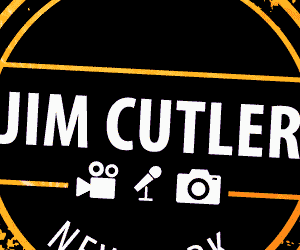Podcasts will never completely kill radio. They will seriously impact listener habits though and really disrupt younger generations’ relationship with audio entertainment. I think the same is true for YouTube and television. So much of what is on YouTube is self-indulgent garbage, made only to entertain its creator. The website, as currently constructed, will never replace all of television, but in some categories, YouTube is just as powerful as any cable or broadcast network.
The area that springs to mind immediately is sports talk. Radio stations already have their own channels. ESPN plucked its most valuable asset right off of the platform. FS1 hired Emmanuel Acho after he raised his profile with his Uncomfortable Conversations with a Black Man series.
YouTube’s impact on sports talk is not just at the highest end. So many people have learned that if you have a good mic and decent production value, you can cut through and reach the audience that would be most interested in what you have to say.
Go to the website right now and search any sport or any team you want. You will find plenty of quality content being produced for less than a fraction of what others are paying.
It’s not a commentary on the quality of those shows or on the skill of those that make them. It’s just a fact. Good cameras and microphones have never been cheaper and editing and uploading video has never been easier. The explosion of sports talk on YouTube is the result of all of that.
All of this has been swirling around my brain since I first read that ESPN was considering filling the void that will be left when Around the Horn ends its more than two-decade run on TV by extending Pardon the Interruption from 30 minutes to a full hour.
What even is PTI in the age of YouTube? And why do we need more of it when the two hosts can’t even be bothered to be in the same city half the time? There was certainly a time when the show was as important to the ESPN lineup as SportsCenter, but those days are more than a decade old at this point.
I remember watching the show’s very first episode in 2001. It felt fresh and different. It played against expectations with the younger, more active Michael Wilbon serving as the curmudgeon that hated the world changing around him while the older and more reclusive Tony Kornheiser was eager to point out and laugh at absurdity in the sports world.
Back then, there was nothing like it, but as is bound to happen with every revolutionary show, years of copycats coming out and finding varying degrees of success means that now so many sports talk programs are just like Pardon the Interruption. Its success robbed the show of its unique identity.
It’s a testament to just how much Wilbon, Kornheiser and the entire PTI family have accomplished. But it’s also a reason the show doesn’t need to expand to an hour.
I’m not in the meetings. I don’t have access to the research. There could be all kinds of metrics that say expanding PTI is the perfect solution to ESPN’s upcoming 5 p.m. problem. But in a world with a surplus of sports talk – on TV, on the radio and on YouTube that all looks and sounds like PTI, surely there is something cheaper and more interesting ESPN could do.
Barrett Media produces daily content on the music, news, and sports media industries. To stay updated, sign up for our newsletters and get the latest information delivered straight to your inbox.

Demetri Ravanos is a columnist and features writer for Barrett Media. He is also the creator of The Sports Podcast Festival, and a previous host on the Chewing Clock and Media Noise podcasts. He occasionally fills in on stations across the Carolinas in addition to hosting Panthers and College Football podcasts. His radio resume includes stops at WAVH and WZEW in Mobile, AL, WBPT in Birmingham, AL and WBBB, WPTK and WDNC in Raleigh, NC.
You can find him on Twitter @DemetriRavanos or reach him by email at DemetriTheGreek@gmail.com.






